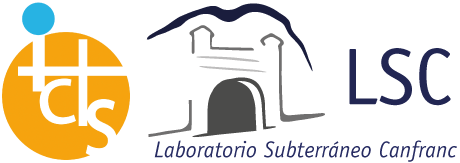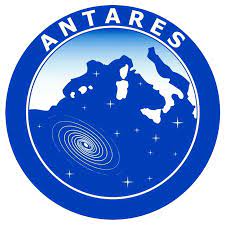Parametres for Understanding Uncertainty (P4UU) is an artistic research project organised and led by artist researcher Rebecca Collins. The project investigates how methodologies used in creative practice meet those in the physical sciences.
P4UU draws on expertise in creative practice, particle physics, and media and communications to investigate how sound technology is used to push at the limits of what we know about the Universe. Invisible matter often described as ‘dark matter’ or neutrinos refers to the tiniest particles continually in circulation in our daily lives. Dark matter, more abundant than ordinary matter, is notoriously difficult to detect. P4UU makes use of sonic detection in the form of autoethnographic accounts unfolding from field visits to sonic-inflected searches for dark matter, the setting up of a series of art/science encounters and barely visible infrastructures to hold conversations and ongoing exchanges across disciplinary boundaries.
For the duration of the research Rebecca Collins is artist-in-residence at the Institute for Theoretical Physics (UAM-CSIC) at the Autonomous University in Madrid. To probe the parametres of uncertainty Rebecca engages in a daily practice of attending to the rhythms, atmospheres, and affects in circulation within the Institute for Theoretical Physics.
She has a blackboard, a lunchbox, a hot water bottle, a chair, desk, chalk, and her own transport to ensure she can be there every day.
She is searching for clues, levers, wormholes.
Practices within the Institute include reading aloud outreach posters, attending research talks, seminars, chatting to physicists at coffee breaks, hanging out in the computer cluster area (to feel the wind of universe simulation cooling fans in her hair) and occupying a seat as a (weakly interacting) member of the dark matter research group.
Rebecca undertakes field research at laboratories where physical science experiments use sound technology for dark matter detection. To date she has visited the Acoustic Investigations in Astrophysics group based at the Polytechnical University of Valencia and the Underground Laboratory at Canfranc. She is committed to making situated accounts of her visits as a means to offer new angles on abstract and otherwise intangible research processes.
A series of interdisciplinary seminars foster uncertain encounters creating a community of displaced thinkers who are keen to linger in the knowledge gaps and imaginative leaps that occur when artistic sensibilities meet science.
The project has brought together artists, scientists, media & communication specialists, mathematicians, engineers, fluxus scholars, musicologists, sociologists, CEOs, ethnographers, human geographer, musicians, art historians, curators, film makers, and anyone curious enough to suspend disciplinary constraints.
After each seminar and as part of ongoing momentum following the ‘Practices for Collective Uncertainty’ workshop held in July 2022 rumours have it that an ‘uncertain family’ of sorts is forming.
P4UU is partnered with laboratories and experts within Spain dedicated to searching for dark matter, theories of the quantum world and the holographic universe. Centres for advanced creative practice and artistic research within Europe and Scotland further complement the research methodologies that P4UU is engaged with.
Institute of Theoretical Physics
The Institute of Theoretical Physics (IFT) UAM-CSIC (a joint research centre belonging to the National Research Council (CSIC) and the Autonomous University of Madrid (UAM) is the host institution for P4UU. It is the ideal location as it has a world-leading team of researchers dedicated to the detection of dark matter amongst other areas of study within physics. Members of the IFT are actively engaged in international experiments and in developing new theories to understand the parametres within which this elusive particle exists.
AZALA
AZALA is a centre for advanced artistic practice and cultural creation in Lasierra, a small town in Álava close to Vitoria in the Basque Country. It is a two-pronged project that combines cultural investigation and rural accommodation. It is a space for group stays that require time and space in contact with nature, the sky, the air, the land, the forest … AZALA means skin in Basque, a permeable membrane that allows the body to stay intact while communicating with the environment. AZALA also means surface in Basque, which refers to the extension of a territory.
Subterranean Laboratory Canfranc (LSC)
A series of experimental halls 800m deep beneath Mount Tobazo in the Spanish Pyrenees. Rock filters provide a buffer to assist in cultivating cosmic silence to enable the study of unlikely events, most often in experiments to detect dark matter. Dark matter describes 85% of the mass of the Universe however we are yet to know what this consists of.





